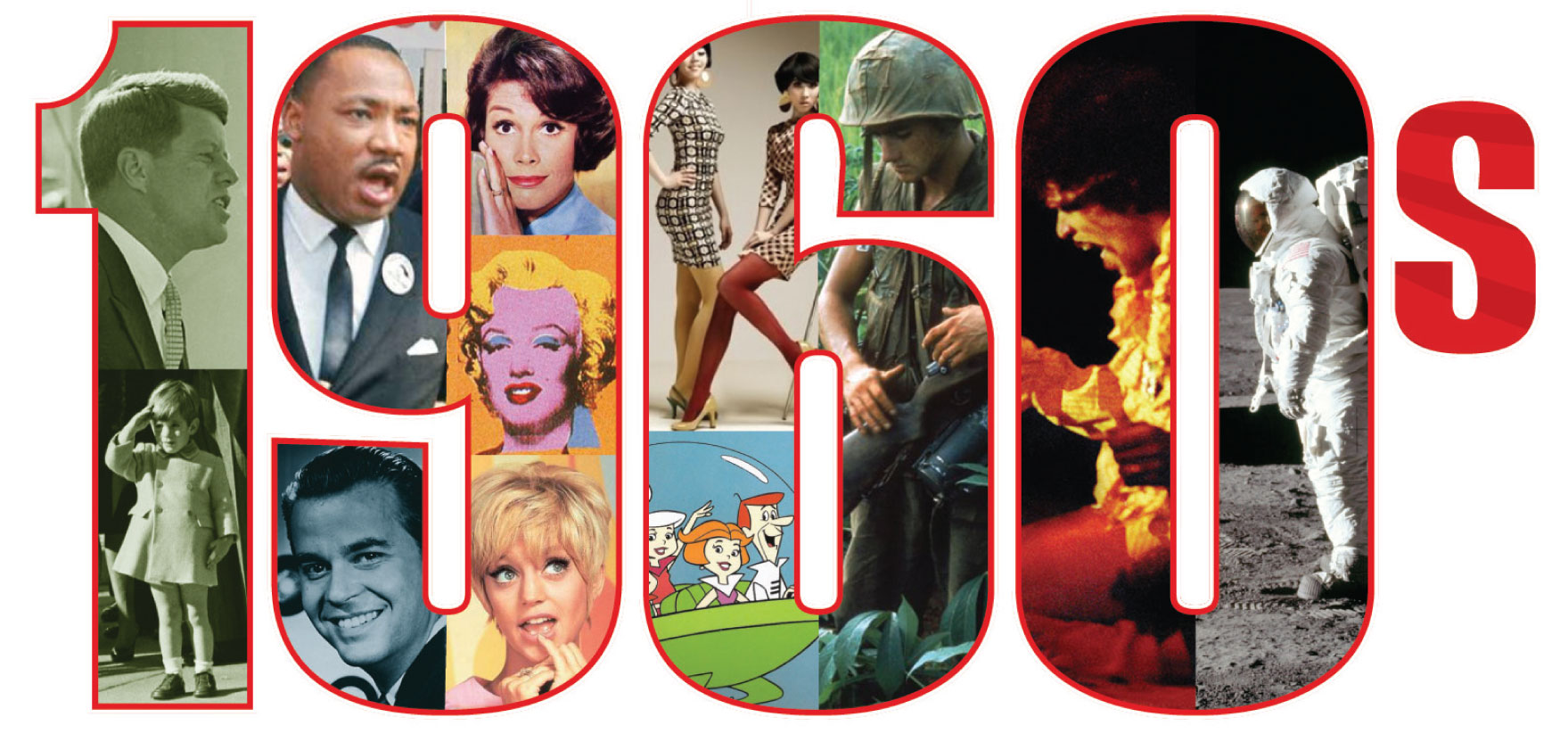
Pop culture is that loose blend of books, music, fashion, and other daily ephemera that contributes to the identity of a society at a particular point in time. In essence, pop culture is a self-portrait created through purchasing power. In the '60s, radio, film, television, and books carry the essence of American pop culture. In 1960, nearly half of America's population is under 18 years old. It's a young society and the most affluent generation in U.S. history. American teenagers have $22 billion a year at their disposal (a sum equivalent to $140 billion in 2005 dollars).
The 1960s (pronounced "nineteen-sixties", shortened to the "'60s" or the "Sixties" ) was a decade that began on January 1, 1960, and ended on December 31, 1969.
The "cultural decade" of the 1960s is more loosely defined than the actual decade. It begins around 1963–1964 with the John F. Kennedy assassination, the Beatles' arrival in the United States, and their meeting with Bob Dylan, and ends around 1969–1970 with the Altamont Free Concert, the Beatles' breakup, and the Kent State shootings, or with the withdrawal of troops from Vietnam and the resignation of U.S. President Richard Nixon in 1974. PBS.org
The term "the Sixties" is used by historians, journalists, and other academics in scholarship and popular culture to denote the complex inter-related cultural and political trends around the globe during this era. Some use the term to describe the decade's counterculture and revolution in social norms about clothing, music, drugs, dress, sexuality, formalities, and schooling; others use it to denounce the decade as one of irresponsible excess, flamboyance, and decay of social order. The decade was also labeled the Swinging Sixties because of the fall or relaxation of social taboos that occurred during this time, but also because of the emergence of a wide range of music; from the Beatles-inspired British Invasion and the folk music revival to the poetic lyrics of Bob Dylan. Norms of all kinds were broken down, especially in regards to civil rights and precepts of military duty. Wikipedia

Florida Atlantic University Libraries
777 Glades Road
Boca Raton, FL 33431
(561) 297-6911
